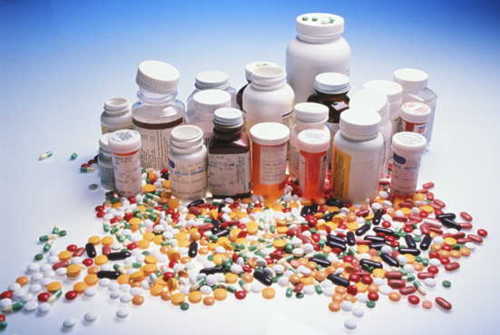Political Outcast
by Stephen F. Hotze, M.D.
February 22, 2013
 The pharmaceutical companies have broadened their horizon. It is not enough that they have 30% of middle and upper income white women addicted to antidepressants and that 20% of adults take some form of psychiatric medication. They now want to hook as many children as possible on psychiatric medication as well.
The pharmaceutical companies have broadened their horizon. It is not enough that they have 30% of middle and upper income white women addicted to antidepressants and that 20% of adults take some form of psychiatric medication. They now want to hook as many children as possible on psychiatric medication as well.
Big Pharma has one goal: Make profits no matter what it takes. This can only be accomplished by convincing lay people and physicians that the solution to health problems is drugs. Common sense tells you that this view cannot be true. Nobody is sick because they have low levels of pharmaceutical drugs in their bodies. In fact people that are taking multiple prescribed drugs suffer from a host of side effects which can be simply annoying, sometimes debilitating and even life threatening. Unfortunately the overwhelming majority of Americans and physicians have swallowed the pharmaceutical companies’ drug bait, hook, line and sinker.
Americans make up just 5% of the world’s population, yet they consume over 40% of the drugs that are produced. Do you think that the billions and billions of dollars that the drug companies spend on television and other advertising have influenced this outcome? When your children went off to high school, you probably told them “Just say ‘No!’ to drugs!” Yet when you watch television, the drugs companies are selling you on the proposition to “Just say ‘Yes!’ to drugs.”
Only two countries, New Zealand and the United States allow drug commercials on television. The FDA approved drug commercials in the U.S. in 1999. Pharmaceutical companies spend nearly $5 billion annually on direct to consumer advertising on television. The average American watches nearly 16 hours of drug commercials every year. That works out to 1920 drug commercials every year. Over 20 years that will amount to 320 hours (8 – 40 work weeks) watching 38,400 drug commercials. Americans are being brainwashed into believing that drugs are the panacea for all problems, physical and emotional.
Were you aware that the federal and state governments are working in concert with the pharmaceutical companies to promote the use of psychiatric drugs in children? Pharmaceutical drug companies have developed so-called mental health care screenings for children. When a child is screened at school and found to have symptoms of a mental disorder, then the child is referred to a psychiatrist and given psychiatric drugs. These drugs are amphetamines for the treatment of so-called Attention Deficit Disorder (ADD) or antidepressants and antipsychotic drugs for other symptoms.
Guess who devises these mental health screening tests and promotes their use? The drug companies and their in-house psychiatrists do. Guess who funds these school screening programs? Of course, it’s the drug companies.
Nearly 9 million children in America are taking prescribed psychiatric medication and the drug companies are laughing all the way to the bank. Antidepressants have been demonstrated to provide no more long term benefits than do placebos. The difference is that placebos will not cause you or your children to have suicidal or homicidal ideas and actions like the antidepressants do. By the way, antidepressants are prohibited in England and the U.K. for children 18 and under.
Antidepressants can create a host of symptoms in children and adults: depression, crying spells, fatigue, insomnia, suicidal ideas, homicidal thoughts, anxiety, panic attacks, jitteriness and trembling, irritability, impulsive actions, agitation, confusion, manic behavior, hallucinations, nightmares, detachment and loss of feelings. These symptoms develop after the antidepressant treatment is initiated. Of course this leads the psychiatrist or local doctor to add other psychiatric medications to the regimen. The patient often becomes a basket case, unable to function. Antidepressants are addictive. They mimic the action of cocaine. The above symptoms are magnified when the antidepressants are discontinued abruptly. No one should stop antidepressants or any psychiatric drug without the guidance from a physician. A patient must be weaned off them very slowly, over several months.

